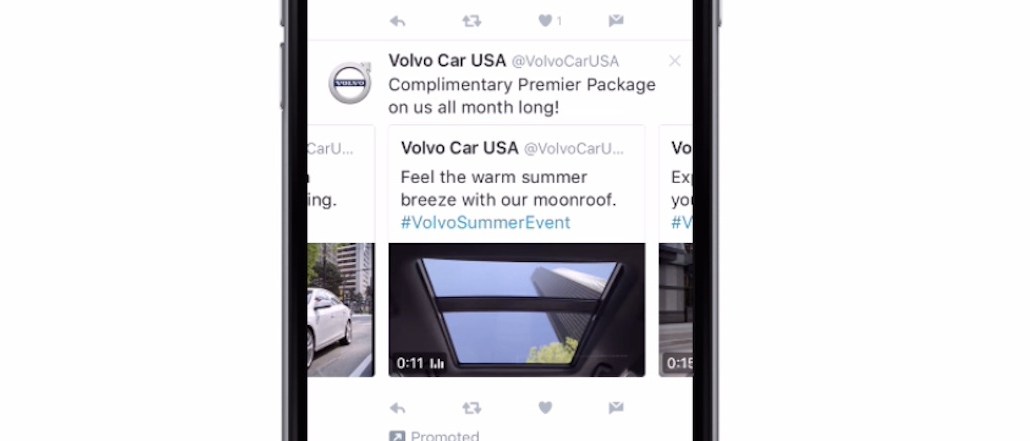
Twitter is rolling out an Instagram-like carousel ad more than six months in the making.
The new type of ad unit that lets brands place multiple tweets, in some cases from users themselves, in a carousel format that lets people swipe through. Digiday first reported in January that it was working on this.
— Twitter Advertising (@TwitterAds) June 3, 2016
The unit, called a “Promoted Tweet Carousel,” lets companies jam up to as many as 20 tweets into it, including videos, pictures and tweets from satisfied customers as long as they give the advertiser explicit permission to use their tweet. Twitter is charging companies only when a user engages with a tweet in the unit.
“Since people tweet about their favorite brands and products every day, we developed this powerful solution to help marketers leverage social recommendations,” Twitter explained in a blog post.
Agencies welcomed the new unit of using people’s tweet since a post from a normal sometimes holds more clout than a celebrity.
Twitter is also likely hoping to replicate Instagram’s monster success because people are 10 times more likely to engage with a carousel ad compared to a static ad on the Facebook-owned platform. Even just a little bit of Instagram’s advertising success could be a boon to struggling Twitter.
More in Media

From sidelines to spotlight: Esports events are putting creators center stage
Esports events’ embrace of content creators reflects advertisers’ changing priorities across both gaming and the wider culture. In the past, marketers viewed esports as one of the best ways to reach gamers. In 2025, brands are instead prioritizing creators in their outreach to audiences across demographics and interest areas, including gaming.

Condé Nast and Hearst strike Amazon AI licensing deals for Rufus
Condé Nast and Hearst have joined the New York Times in signing a licensing deal with Amazon for its AI-powered shopping assistant Rufus.

Media Briefing: AI payouts may be entering a new era
AI compensation is evolving — and new models, not just publisher demands, are driving the shift beyond flat-fee licensing.





